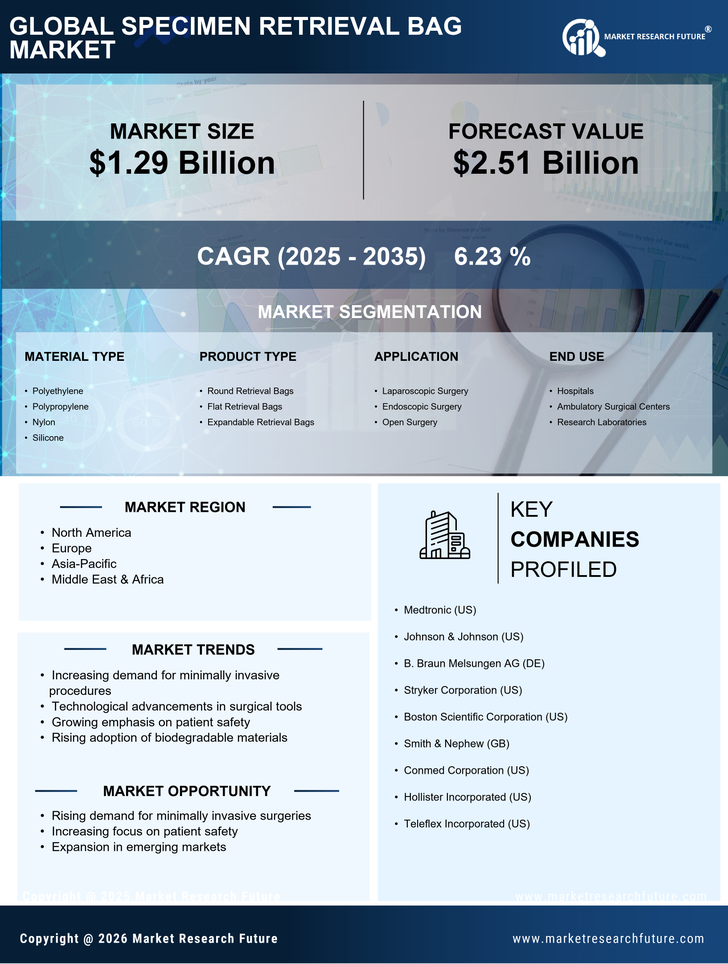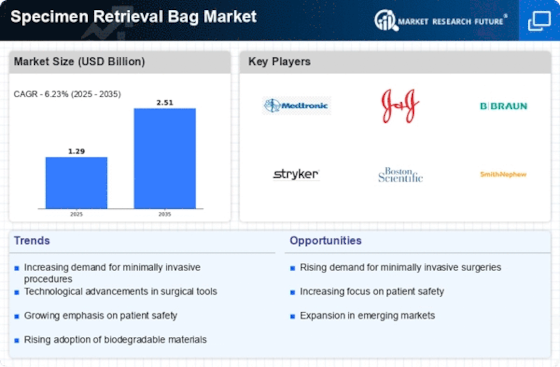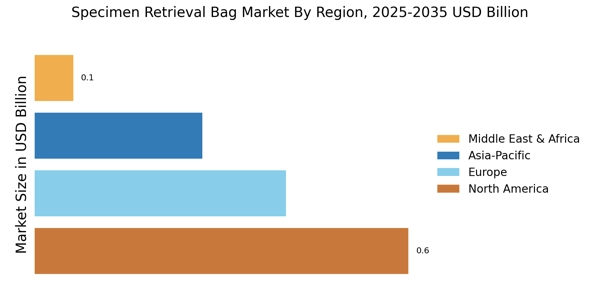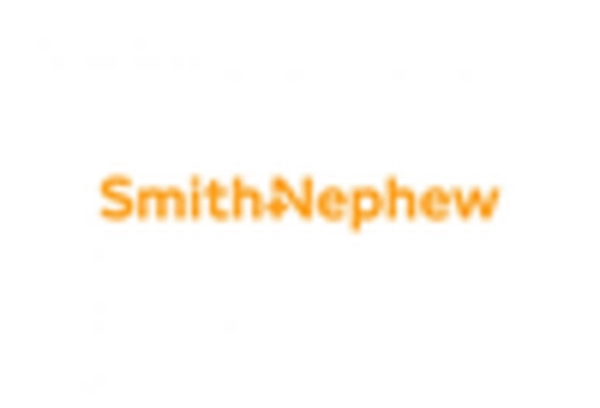Technological Innovations
Technological advancements in the medical field are significantly influencing the Specimen Retrieval Bag Market. Innovations such as the development of biodegradable materials and enhanced bag designs are improving the functionality and safety of specimen retrieval bags. For instance, the introduction of bags with integrated retrieval mechanisms has streamlined the process, reducing the risk of contamination. The market is witnessing a shift towards more sophisticated products that cater to specific surgical needs, which is likely to attract healthcare providers looking for efficiency and reliability. Additionally, the integration of smart technologies, such as RFID tracking, is emerging, allowing for better specimen management and traceability. As these technologies continue to evolve, they are expected to create new opportunities within the Specimen Retrieval Bag Market, potentially leading to increased adoption rates among healthcare facilities.
Rising Surgical Procedures
The increasing number of surgical procedures worldwide is a primary driver for the Specimen Retrieval Bag Market. As healthcare systems expand and improve, the demand for surgical interventions rises. According to recent data, the number of surgical procedures is projected to reach over 300 million annually by 2025. This surge necessitates the use of specimen retrieval bags to ensure safe and efficient collection of surgical specimens. The Specimen Retrieval Bag Market is likely to benefit from this trend, as hospitals and surgical centers seek reliable solutions to enhance operational efficiency and patient outcomes. Furthermore, the growing prevalence of chronic diseases, which often require surgical intervention, further fuels this demand. Thus, the interplay between rising surgical procedures and the need for effective specimen management is expected to drive market growth.
Regulatory Support and Standards
Regulatory support and the establishment of stringent standards are pivotal in shaping the Specimen Retrieval Bag Market. Regulatory agencies are increasingly focusing on ensuring the safety and efficacy of medical devices, including specimen retrieval bags. Compliance with these regulations not only enhances product credibility but also encourages manufacturers to innovate and improve their offerings. The introduction of guidelines that mandate the use of high-quality materials and designs is likely to drive market growth, as healthcare providers seek compliant products. Furthermore, as regulations evolve, manufacturers are compelled to invest in research and development to meet these standards, fostering a competitive market landscape. This regulatory environment is expected to bolster the Specimen Retrieval Bag Market, as adherence to safety standards becomes a priority for healthcare facilities worldwide.
Growing Awareness of Infection Control
The heightened awareness surrounding infection control in healthcare settings is a crucial driver for the Specimen Retrieval Bag Market. As hospitals and surgical centers prioritize patient safety, the demand for products that minimize the risk of contamination is increasing. Specimen retrieval bags play a vital role in maintaining sterile environments during surgical procedures. Recent studies indicate that the use of high-quality retrieval bags can significantly reduce the incidence of post-operative infections. Consequently, healthcare providers are more inclined to invest in reliable specimen retrieval solutions. This trend is further supported by regulatory bodies advocating for stringent infection control measures. The Specimen Retrieval Bag Market is likely to see growth as healthcare facilities adopt advanced retrieval bags that align with these infection control protocols, thereby enhancing patient safety and operational efficiency.
Increase in Minimally Invasive Surgeries
The rise in minimally invasive surgeries (MIS) is a significant driver for the Specimen Retrieval Bag Market. As surgical techniques evolve, there is a growing preference for procedures that minimize patient trauma and recovery time. MIS often requires specialized tools, including specimen retrieval bags designed for smaller incisions. The market for these bags is expanding as more surgeons adopt minimally invasive techniques, which are associated with reduced complications and shorter hospital stays. Data suggests that the adoption of MIS is increasing at a rate of approximately 10% annually, indicating a robust growth trajectory for the Specimen Retrieval Bag Market. This trend not only enhances patient outcomes but also drives demand for innovative retrieval solutions that cater to the unique requirements of minimally invasive procedures.


















